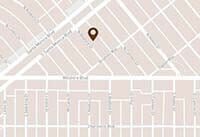
Your food consumption and eating habits determine how much you weigh. The kinds of food you eat, the volume of your food intake, and the nutritional value that you get from your food consumption all combine to set your weight, whether healthy or unhealthy.
And if you have been indulging in unhealthy eating habits, chances are your weight will be in the unhealthy range. And eventually, you will find it difficult to lose that weight. The added weight will also likely lead to unpleasant conditions such as high blood pressure, diabetes, various cardiovascular diseases, and even stroke.
If you find that your weight is in the unhealthy weight range, you need to lose weight. To do this, you need to undergo a healthy diet.
But with so many diets out there, choosing the right one for you can become a bit complicated. There are diets recommended according to body type. There are diets that are plant-based, with no animal components allowed. There’s a diet that limits the time allowed for food consumption otherwise known as intermittent fasting. Another diet calls for just one meal consumption a day!
So how do you know which one you should do?
Well, don’t worry. This guide is here to help you narrow down your search for the right diet to help you achieve your weight loss goals.
Consider Your Weight Loss Goal
It would be good if you can identify exactly what your weight loss goal is. Is it something that is short-term, like wanting to fit into your favorite dress that you plan on wearing for your best friend’s wedding? Or is your weight loss goal more long-term, such as ensuring minimal risk for cardiovascular diseases which run in your family?
Try to anchor your goal into something that has value for you. If being in good health is important to you, then consider a weight loss goal that will help you achieve a BMI score between 18.5 to 24.9, which is considered healthy.
If you would like to reduce the risk of developing lifestyle diseases associated with obesity, then a gradual weight loss over time may be of more value to you. You can set your goal to bring your BMI score closer to the healthy weight range which may be a more doable and sustainable target for you.
Seek Medical Advice From Professionals
Our weight is one of the indicators of our health status. This is true for people who are underweight, which can be a sign of malnutrition. And truer still for people who are overweight to extremely obese, which puts us at higher risk for serious health problems.
So before embarking on a diet plan, make sure that you seek medical advice. Don’t just get advice from your friend or for someone who is also dieting. One, they may not be trained and can only be going from their personal experiences. Two, what worked for them may not necessarily work for you.
Seeking the advice of a health professional or a nutrition specialist will be something good since they are the ones who can recommend the best path you should take. They’ll examine you, your eating habits, and your health history, which means they’ll have clear data for basing their recommendations on.
Depending on your health status, they might recommend that you focus on minimizing your food intake of food laden with sugar, salt, empty calories, or carbohydrates. Or they might also recommend increasing your consumption of healthy food types such as vegetables, fruits, fish, whole grains, whole food, and other nutrition-dense food.
Any weight loss goal or regimen needs to be discussed, agreed upon, and closely monitored by a health care professional.
Consider All Available Diet Options
The types of diet can be classified into six major groupings: balanced, high protein, low carb, low fat, meal replacement, and very low calorie. Through research and materials from reliable sources, you can find out which diet plans work and which do not.
These diet plan groupings have advantages and disadvantages in terms of their flexibility, nutrition balance, and long-term sustainability. Quite a few of these are not flexible in terms of food intake restrictions. This may result in nutritional deficiencies. Some diets are to be sustained over time to achieve weight loss goals, while others are short-term.
Your weight loss goal will help you settle on the diet plan you feel will work best for you. Remember, your decision is supposed to help you achieve the results that you wish to see after making changes in your food consumption and unhealthy eating habits.
Whatever diet plan you choose or is recommended by a health and nutrition professional, sticking with that diet along with a higher level of physical activity will lead to weight loss. Your attitude, motivation, commitment, and perseverance in working towards your weight loss is important to factor in helping you achieve your weight loss goals.
Important Questions To Ask About Diet Plans
There are three questions that you need to consider when choosing the right kind of diet. First is a question of science and research. Is the diet plan backed by research? Does it have a scientific basis? Has there been a study that shows the success rate in terms of weight loss volume and length of time the weight stays off?
Another question that you need to ask is about the risks of a particular diet. You do not want to go blindly into a diet plan without getting information on the risks involved. Be aware of the risks you may face in available diet plans before you make any decision.
One last question that you have to ask is about the results. You would like to find out how much weight are you expected to lose. What is the projected time for significant weight loss to become evident? Are the expected results in line with your weight loss goals?
Finding the answers to these questions can help you settle on the diet plan that is best for you.
The Right Choice
The right choice of diet that will help you achieve your weight loss goals will hopefully become clearer if you follow this guide. Remember, it is your body and your choice. Unless weight loss is a medically necessary life and death intervention, the power to choose is ultimately yours.
However, if losing weight is medically necessary in your case, you might need more drastic measures, such as weight loss surgery. After all, we know that losing weight is not easy.
Therefore, we recommend that you visit us at Weight Loss Surgery LA, and see our head, Dr. David Davtyan. He possesses a deep understanding of your needs, as he has also been a patient who required weight loss surgery. He would want to see you and thousands of others who are struggling with their weight achieve wins.
If you are in Los Angeles and you need someone to talk to about weight loss and what your options are, reach out to us. We welcome inquiries of all kinds. Please do not hesitate to contact us via phone or the form on our website.
Posted on behalf of Dr. David G. Davtyan MD, FACS, FICS





